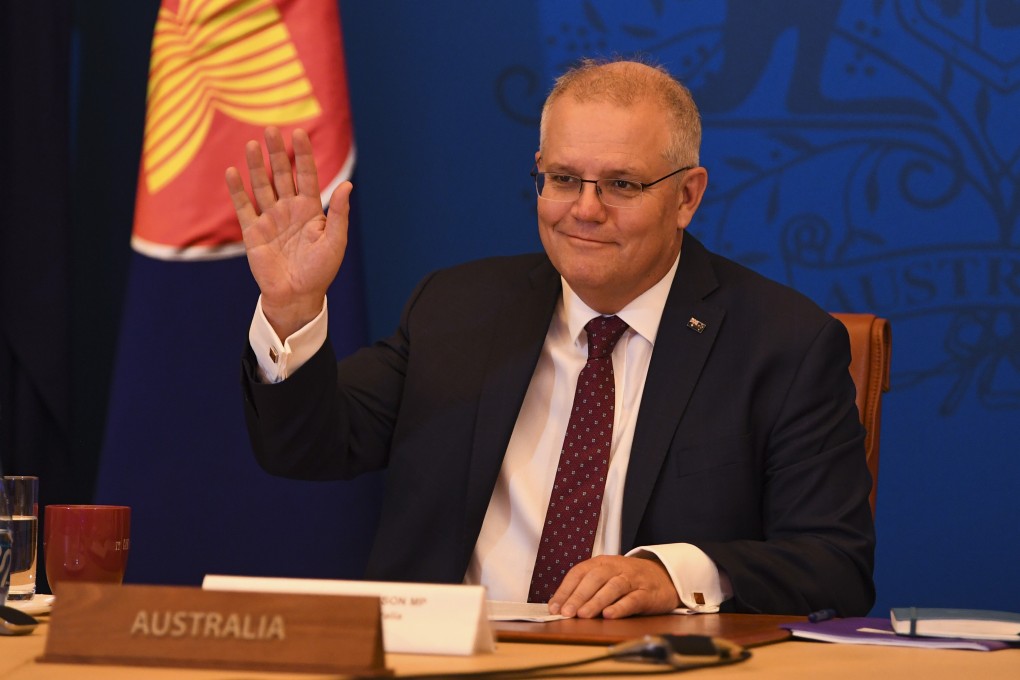China-Australia relations: Scott Morrison’s speech ‘confusing’ but ‘well-crafted’, offers hope for thawing ties
- Australian Prime Minister Scott Morrison on Monday commended China for lifting its citizens out of poverty at a time of strained relations with Beijing
- Some described the speech as ‘confusing’ and ‘disingenuous’, but others welcomed it as a move towards repairing a relationship worth US$170 billion in two-way trade

Toned-down comments from Australian Prime Minister Scott Morrison about relations with China earlier this week were “confusing,” observers and analysts said, but could indicate the start of a turnaround in frayed relations between the two countries.
On Monday, Morrison commended China for lifting its citizens out of poverty and said the competition between China and the United States had “heavily clouded and distorted” Beijing’s perception that Canberra had taken sides with Washington.
James Laurenceson, director of the Australia-China Relations Institute, said the double meanings in Morrison’s speech, particularly when he recommitted Australia to its “enduring alliance with the US” anchored in a “shared world view, liberal democratic values and market-based economic model” were confusing.
Do we too regard China as a ‘whole of society threat’? The last time I checked, I understood China to be a vital regional partner
“Prime Minister Scott Morrison said in June – on China his government had done nothing to injure that partnership. This week, he attributed worsening tensions to ‘some misunderstandings’, to be precise, China’s misunderstandings,” Laurenceson said.
“At the same time, he said this week the US alliance was ‘anchored in our shared world view’. How can this be so when the US view of the world is now dominated by perceptions of China being a ‘whole-of-society threat’? No wonder the Chinese embassy in Canberra is confused.